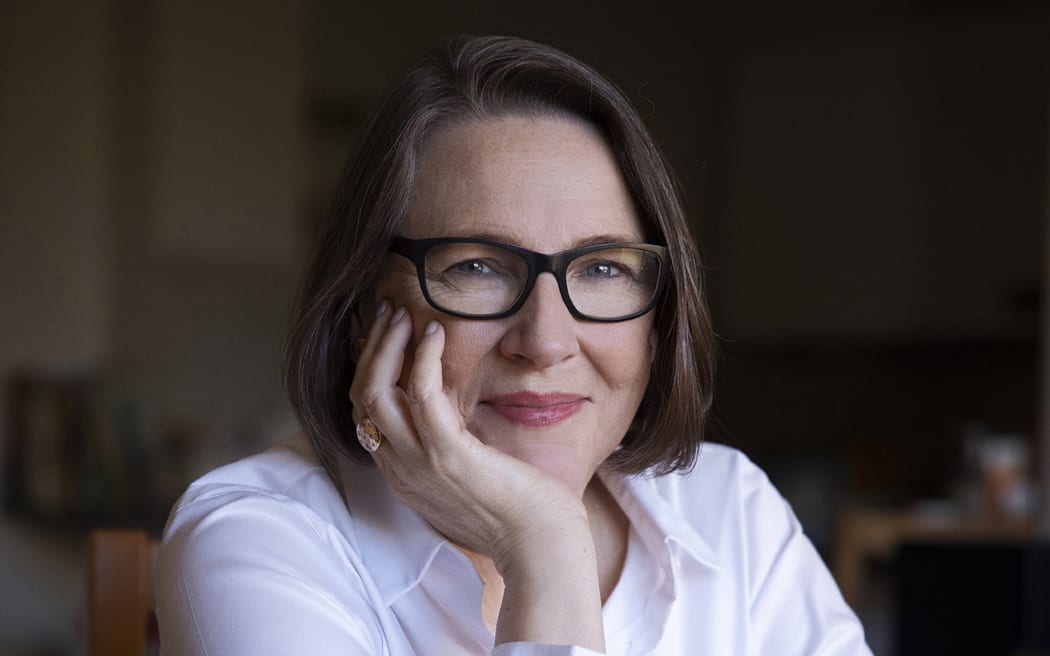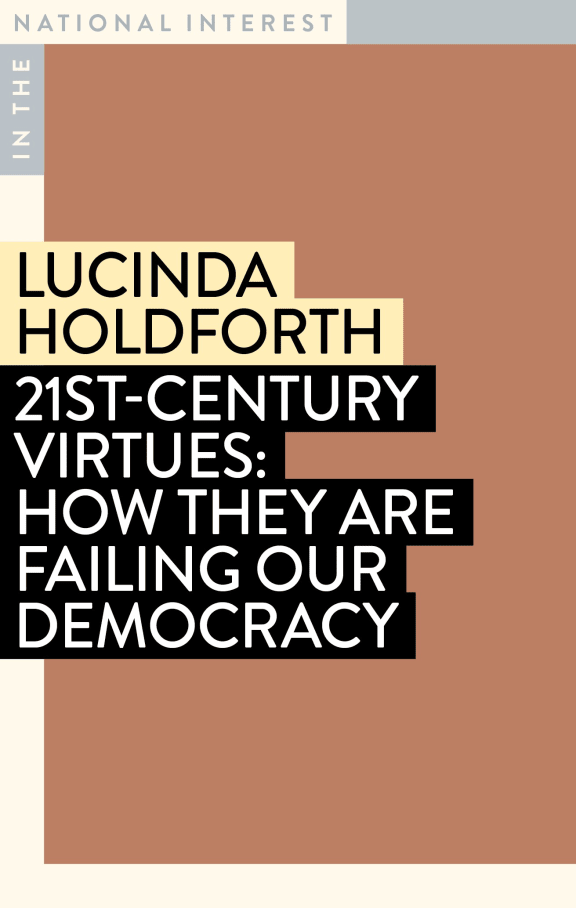Humility, authenticity and vulnerability sound great, but these qualities have turned too many into virtue signalling, self-absorbed narcissists, says Lucinda Holdforth.
She's a former speech-writer for Australia's ex-Labor leader Kim Beazley.
She believes the quest for these attributes encourage people to put self before community have replaced courage, truthfulness and integrity.
She takes aim at self-help gurus and challenges everyone to examine the values shaping our society in her book, 21st Century Virtues: How They Are Failing Our Democracy.

Lucinda Holdforth Photo: Monash University Press
LinkedIn is a rich fantastic source of what modern virtues look like, she tells Jesse Mulligan.
“It's become what I call neoliberalism's portal.”
Words and phrases which come up time and again on Linkedin are: vulnerability, authenticity, my truth, selfcare, humility and empathy, she says.
“Where I traced the origins of this new virtue system back to was the work of an American, a very charming American woman, who gave a TED talk in 2010. And her name's Brené Brown, she gave a talk called The Power of Vulnerability.
"She's become a kind of enormous industry. So, here in Sydney, where I live, there's the big bookshop Dymocks in the centre of town, there's basically a whole floor devoted to Brené Brown.”
Brown’s theory is America’s problems of obesity, addiction, self-medication and indebtedness are through a lack of connection.
“First of all, her diagnosis of the problem wasn't economic disparity. It wasn't the precariousness of modern work. It was that we had failed to connect.
“And her argument was that if we were vulnerable with each other, then we would connect, and we would feel better about ourselves and make a better society.”
Her ideas have taken off in corporate and public life, Holdforth says.
“The extraordinary thing about these virtues is that they are everywhere from senior corporate leaders talking this language of humility, sharing their vulnerable selves.
“Church leaders, vice chancellors at universities, school principals, it's absolutely everywhere and monolithic.
“And yet we no longer hear about words so much like integrity, truthfulness, self-restraint. These words seem to have disappeared from the lexicon.”
An old Snakes and Ladders game from the 1930s brought this sharply into focus, she says.
“The vices were interesting, they were things like, anger, avarice, cruelty, covetousness, dishonesty, depravity. Frivolity used to be a vice, it's not a vice anymore. Quarrelsomeness, selfishness, slander, pride was a vice, unpunctuality was a vice. I'm very disappointed that we no longer rate unpunctuality as a problem. And vanity was a vice. And of course, vanity now is considered mandatory, because it's self-care.
“So many silly things have disappeared from the culture, and that's great.
“But what I worry about is good qualities like kindness, truthfulness, self-restraint, honesty, those kinds of virtues seem to have subsided.”
She takes a dim view of the fashion for leaders who spruik their authenticity, she says.
“There's a great fashion for talking about authentic leaders and empathetic leaders. And that sounds great, except that's personal virtues, isn't it? It's about personal measures of what's good.
“But the sort of leaders I respect have kind of universal principles that they follow, and a sense of what's right for all citizens.”
This rush to be authentic is a little dishonest, she says.

Lucinda Holdforth book cover Photo: supplied
“To paraphrase the great Groucho Marx, if you can fake authenticity, you've got it made. But more seriously, we do now elevate this idea of authenticity.
“And what worries me about that is that authenticity is fantastic if you're trying to buy an Old Master painting, right? You know that that painting was done by that painter, and therefore it's worth this much.
"But we human beings are not fixed. We are malleable, we change, we evolve. And we need to be able to do that in our lives on the basis of our experiences and our interactions with others.”
Aristotle said virtue did not rely on some an authentic self, but lay in doing the right thing at the right time for the right reasons, she says.
She gives the example of Prime Minister John Curtin in Australia.
“He was a Pacifist, he did not believe in war. And yet he found himself in the terrible position of taking Australia into World War II.
“And he did that because that was the greater good, he ruptured his own authentic beliefs for the greater good. I find that story extremely moving, and a very important lesson to us all about, let's not ask our leaders to hang on to some, if you like, awful personal brand idea of who they are. Let's ask them to respond to circumstances.”
Curtin today would be pilloried, she says.
“He said, 'this is what I've believed my entire life, but I'm going to act differently because that's what circumstances demand', we wouldn't applaud him for his moral courage, we would criticise and pillory him for no longer being authentic.
"And I would also note, there's something beautiful about the human, the human diversity within us, isn't there? I mean, Virginia Woolf, the great British writer talked about so many selves, she talked about that we all have so many selves within us, let's not shut ourselves down into some perfect authentic thing, like a piece of old silver with a stamp on it. Let's remember that we are complex, diverse, changing creatures evolving with the times.”
Empathy is, she believes, an overrated virtue.
“I worked for a Labor Government, I'm a left progressive, empathy sounds good - many of these virtues sound good.
“But empathy is a great way just to simply say, I feel your pain.
“And that's a great cop out isn't it? You don't have to do anything. You just say I feel your pain. And that's enough.”
Kindness is a superior virtue, she says.
“Because if you are to be a kind person that demands action, on your part, that you do something.”
She experienced this when she had breast cancer.
“I had a friend who loved cooking, she would bring food around.
“And another friend who was working in a secondhand bookshop, so she would select secondhand books and she would just send me a book once every three or four weeks.”
They didn’t say “I feel your pain”, she says.
“I can't feel another woman's pain when she's in breast cancer. I have an idea, but I can't feel it because we're all different, and they can't feel mine.
“But we can be is kind to each other, and practical measures are always very welcome.”

